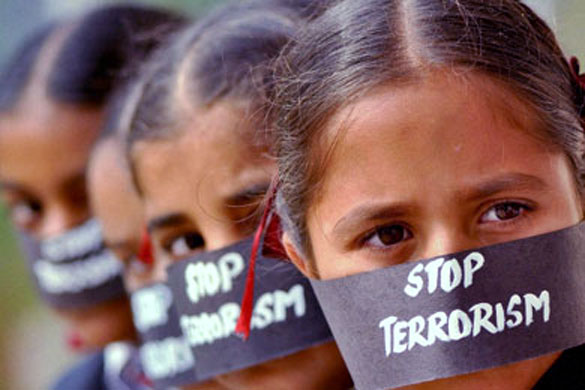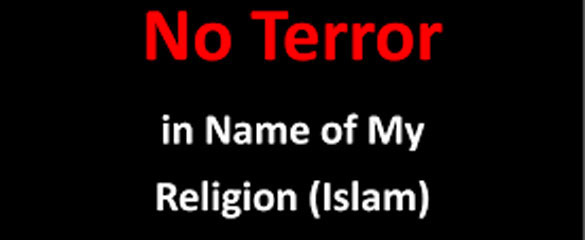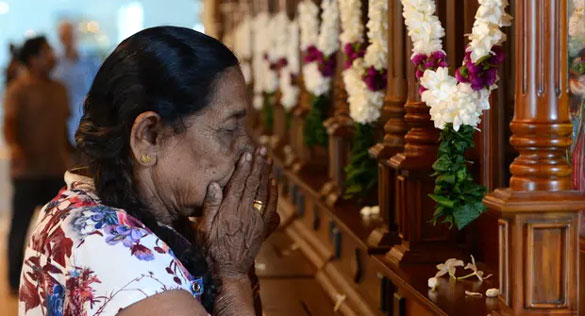Probe Into Islamist Terrorist Easter Attacks In Sri Lanka In 2019 Exposes Serious Security Lapses: The Plight Of Muslims Post Attack
New Age Islam Special
Correspondent
21 November
2020

The
government probe into the deadly Easter attacks on churches and hotels in Sri
Lanka on April 21, 2019 is nearing its conclusion. Apart from establishing the
link of the local radical outfit National Tauheed Jamaat to the international
terrorist organisation ISIS and their involvement in the attacks, the probe has
also exposed serious lapses on the part of the intelligence agencies and law
enforcing agencies of Sri Lanka in preventing the attacks.
The
investigations into the attacks have established the role of Zahran Hashmi, an
active member of NTJ and Abdul Haque and Sadiq and other members of the group.
NTJ subscribed to the Salafi-Wahhabi ideology and had already been at loggerheads
with tolerant Sufi Islamic sects of Sri Lanka.
-------------------------------------------------------------------------------------------
-------------------------------------------------------------------------------------------
For
example, in 2009, the imam of a mosque, Masjidur Rahman affiliated to the
Natiknal Tauheed Jamaat issued a fatwa against the mosques affiliated to the
Sufi Alawiyyah Tariqa and Qadiriyya Tarika. The mosques as usual had organised
their annual feast which was attended by about 80,000 Muslims. The Tauheed
mosque Imam said that the feast was haram and those who organised the feasts
were Kafirs. This had outraged the religious feelings of members of the Alwiyya
and Qadiriyya Tariqa and they had attacked the Tauheed mosque.
Zahran and
his comrades were arrested after the attacks. The ISIS had also claimed
responsibility for the attacks.
The terror
attacks had unleashed an anti-Muslim wave in Sri Lanka. Muslims were targeted
by Buddhist groups and a mob frenzy was witnessed against Muslims in many towns
of Sri Lanka. The government banned face cover, Niqab and full face helmets.
Muslim women were forced to unveil their faces at government places and Muslim
women employees in government offices were asked to wear saris.

In the
weeks and months after the attacks, many anti-Muslim riots were organised in
many towns. Calls of economic boycott of Muslims were given by the anti-Muslim
Buddhist monk Gyanasara of Bodu Bala Sena. Following his call, Sinhalese people
stopped buying things from Muslim shops. Riots were orchestrated to destroy
businesses of Muslims.
A monk
staged a hunger strike demanding the resignation of two Muslim members of
Parliament. In protest, the entire Muslim cabinet resigned.
A Muslim
doctor Dr Shafi who worked in the gynaecology department of a medical college
hospital was vilified by the majority committee accusing him of sterilising
thousands of Sinhala women. Soon after this, 800 Sinhala women registered
complaints against Dr Shafi. A criminal case was filed against him and he was
arrested.
Muslims
faced a stricter form of surveillance on them by the police and intelligence
agencies. The police asked any Muslim about any visitors or friends dropping at
their house. Mosques and organisations needed clearance from the police for
organising any programme. The names of resource persons, details of the content
of the programme and funding had to be furnished.
Members of
Tablighi Jamaat who would earlier wear long robes switched to T-shirt and
pants. Their women who wore Abaya now wore saris to avoid being branded Jihadis
and harassment in public.
Anti-Muslim
feelings among the majority Sinhalese is not new. The hatred of Muslims in Sri Lanka
was revived after the end of LTTE in 2009. Politicians and extremist Buddhist
monks circulated theories of rise of jihadism in Muslim minority community,
particularly since 2013. The anti-Muslim campaign on television and social
media often culminated into riots.

Mourners grieve at the graves of relatives killed in
the Easter Sunday bombings in Sri Lanka. Journalists question their presence at
deeply personal times such as these. Photograph: Atul Loke/Getty Images
-----
But after
the Easter attacks of April 2019, the anti-Muslim hatred reached its crescendo.
Every Muslim was seen as a jihadi.
However, in
October 2020, Sri Lanka's Parliamentary Committee report said that the Muslims
of Sri Lanka were not involved in the attacks. It was a fringe group influenced
by the Wahhabi ideology that carried out the attacks with the help of the ISIS.
This
brought some relief to the common Muslims of Sri Lanka who faced every kind of
insult, harassment, torture and social ostracism due to the sins of the ISIS
and National Tauheed Jamaat.
The inquiry
commission instituted by the previous commission has now made more shocking
disclosures. The former Inspector General of police, Pujith Jayasundara who had
been suspended for not acting on time and not being able to prevent the attacks
told the inquiry commission that he had provided intelligence input about the
possible attacks to the four senior DGPs but the inputs were deleted from the
telecom records at the behest of the former President Srisena's brother who was
the President of Mobitel Telecom at that time.
Mr Pujith
Jayasundara further told the inquiry commission that Srisena had asked him to
own the responsibility of the attacks for which he was offered inducements like
high post or the post of ambassador.
The head of
country's intelligence chief Nilantha Jaywardana had to resign for failing to
prevent the attacks. Investigations have revealed that Mr Jayewardene had
received the information of the impending attacks on April 4 --- 17 days before
the attacks but sat on the information. Pujith Jaysundara said that the former
President Srisena should take the responsibility for the attacks.
Another
shocking disclosure made by the commission was that Zahran Hashmi had been on the
radar of security agencies since 2015 and an arrest warrant had already been
issued for him in 2017. Still he was not arrested and was allowed to roam free
and execute his plan.
Another
startling fact that has emerged during the investigation is that on December
26, 2018, four months before the attacks, Buddha statues in Muwanella town were
vandalised at night. The town has a mixed population of Muslims and Buddhists.
The police entrusted the task of finding out the culprits with the local
council member 38 year old Md Taslim. The local people told Taslim that two
brothers Sadiq and Abdul Haque who had recently been radicalised and hated the
Buddhists had vandalised the statues. The people also told him that the two
brothers had also stocked weapons in his house. Md Taslim passed on this
information to the police but strangely the police did not arrest them. Taslim
was branded an informer by unknown people on Facebook and was shot at during
his sleep at his home by unknown assailants fifteen days later.. He was
hospitalised and was saved but he became paralysed.

A woman prays at St Anthony’s church, where 54 people
died in the Easter attacks. Photograph: Ishara S Kodikara/AFP/Getty Images
------
Six days
after the attacks the two brothers were arrested as their involvement in the
attacks was established. The weapons used in the attacks belonged to them.
In October
the general elections were held while the incident was still fresh in the minds
of the people and the opposition took advantage of the failures of the
President Srisena and Prime Minister Ranil Vikramasinghe. Strangely enough, the
anti -Muslim Buddhist monk and leader of Bodu Bala Sena who was in jail for six
years for contempt of court was released earlier perhaps to incite Sinhala
people against the Muslims to win the elections.
The
Sirisena government lost and Rajapaksa came to power.
The
Rajapaksa government has not brought much relief to the Muslims. However, the
disclosures have brought some relief for the Muslims. The Muslim cabinet
ministers who had resigned were later re-sworn in and Dr Shafi was released on
bail. But much has not change. The attacks carried out by the ISIS-NTJ have
aggravated the problems of the Muslims in the island. They face greater bias,
discrimination and persecution.
During the
Covid-19 pandemic they faced open and brazen discrimination by the authorities.
Muslims were branded Covid carriers and relatives of Muslim victims of Covid-19
were treated like dogs by the police and health authorities. The organs of
deceased patients of Covid-19 were even removed without their permission.
This is how
a handful of extremist Muslims of Sri Lanka influenced by the ISIS caused
irreparable damage to the entire Muslim population of Sri Lanka. The
radicalised youth become a tool of persecution of their own community at the
hands of anti-Muslim establishment. But the Muslims are not able to realise the
harm the ISIS and Al Qaida have been causing to them in the name of
establishing caliphate and saving them from persecution and injustice.
URL: https://newageislam.com/radical-islamism-jihad/probe-islamist-terrorist-easter-attacks/d/123538
New Age Islam, Islam Online, Islamic Website, African Muslim News, Arab World News, South Asia News, Indian Muslim News, World Muslim News, Women in Islam, Islamic Feminism, Arab Women, Women In Arab, Islamophobia in America, Muslim Women in West, Islam Women and Feminism